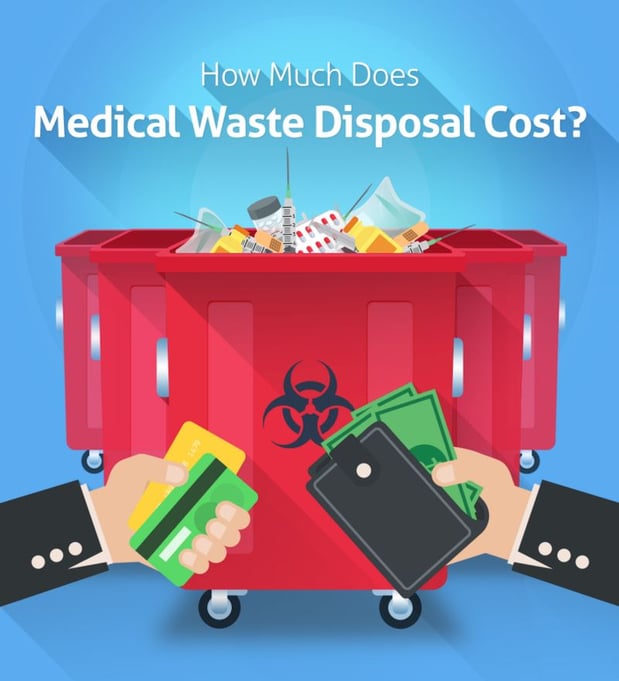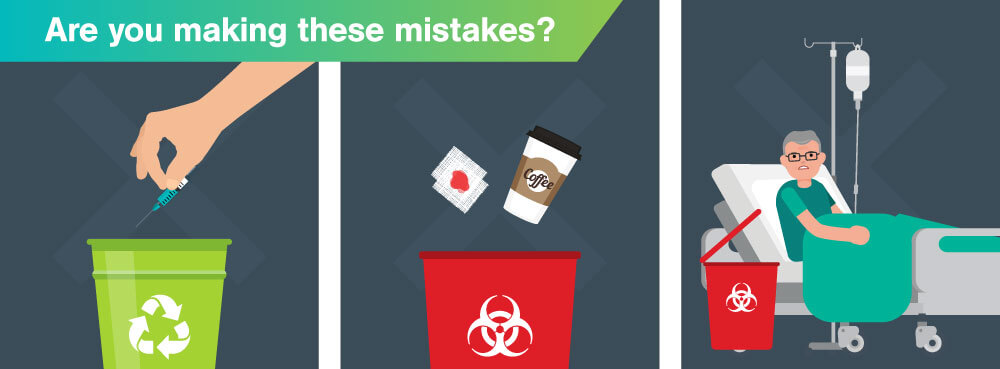Navigating Medical Waste Disposal: Vital Solutions for Health Care Facilities
In the detailed landscape of medical care procedures, the monitoring of clinical waste is a crucial aspect that demands precise interest. Health care facilities, whether small centers or big hospitals, are delegated with the obligation of handling, treating, and dealing with a broad array of clinical waste streams. The intricacies included in navigating with the regulatory demands, guaranteeing proper waste partition, and carrying out risk-free collection and transportation procedures are vital. Comprehending the important solutions that sustain medical waste disposal is not simply a matter of compliance yet likewise a fundamental component in guarding public wellness and ecological wellness. The complexities of this process are important for health care facilities, and the proficiency used in this world plays an essential duty in preserving the integrity of health care systems.
Regulatory Conformity Assistance
For healthcare facilities, guaranteeing regulatory conformity assistance is necessary to preserve proper handling and disposal of clinical waste. By partnering with regulative compliance specialists, health care facilities can remain updated on progressing policies, mitigate dangers associated with inappropriate waste disposal, and eventually contribute to a much safer and much more lasting atmosphere for all.
Waste Partition Assistance

Medical care centers have to give clear guidelines and training to staff on how to segregate waste effectively. This includes dividing basic waste from hazardous materials such as sharps, infectious waste, drugs, and chemical waste.
Collection and Transport Solutions

Appropriate collection and transportation solutions are necessary components of the medical garbage disposal process in medical care centers. These services make certain that unsafe materials are handled securely and in compliance with laws to shield both the atmosphere and public health. Medical care facilities rely upon specialized waste management firms to supply efficient collection and transport solutions tailored to their needs.
Medical waste collection entails setting apart different types of waste at the point of generation, using color-coded containers or bags to identify between basic, hazardous, pharmaceutical, and various other waste streams. As soon as gathered, the waste is transferred in committed lorries outfitted to handle dangerous products securely.
Therapy and Disposal Solutions
In the world of clinical garbage disposal for health care centers, after the important phase of collection and transportation services, the emphasis shifts towards applying reliable therapy and disposal services. Treatment remedies commonly include procedures such as autoclaving, which utilizes heavy steam under stress to sterilize the waste. This approach is frequently utilized for transmittable waste that needs to be provided non-hazardous prior to disposal. One more widespread treatment method is incineration, where waste undergoes heats in regulated settings to lower its volume and eliminate microorganisms.
Disposal services encompass the final step in the clinical waste management process. Facilities might choose for landfill disposal, where treated waste is very carefully transferred in designated areas. Medical Waste Disposal Services. Alternatively, medical care centers can pick to use waste-to-energy centers, which blaze waste to create electrical energy. Recycling and resource healing are also acquiring traction as lasting disposal options for specific types of clinical waste products.
Efficient treatment and disposal remedies are critical in ensuring conformity with guidelines and safeguarding public wellness and the atmosphere. Health care centers have to meticulously examine and pick proper approaches that line up with their waste monitoring goals and sustainability campaigns.
Team Training and Education

To efficiently handle clinical garbage disposal in medical care centers, comprehensive team training and education and learning play a crucial duty in guaranteeing adherence to regulatory requirements and keeping a secure atmosphere. you could try here Appropriate training gears up personnel with the understanding and skills required to take care of different types of medical waste, segregate them properly, and package them firmly for disposal. By enlightening employees on the dangers associated with incorrect handling of clinical waste, centers can reduce the chance of crashes, contamination, and regulatory violations.

Conclusion
In final thought, health care centers count on necessary medical waste disposal solutions to ensure governing compliance, appropriate waste partition, secure collection and transportation, efficient therapy and disposal, as well as personnel training these details and education and learning. These solutions play a crucial function in keeping the health and wellness of both healthcare employees and the basic public, highlighting the relevance of correct management of medical waste in healthcare setups.
For medical care facilities, making certain regulatory compliance support is vital to preserve proper handling and disposal of clinical waste. Waste segregation entails classifying various types of clinical waste to guarantee suitable handling, treatment, and disposal. This consists of separating basic waste from hazardous products such as sharps, transmittable waste, drugs, and chemical waste.Medical waste collection includes segregating different types of waste at the factor of generation, utilizing color-coded containers or bags to distinguish in between basic, unsafe, pharmaceutical, and various other waste streams.In the world of clinical waste disposal for health care centers, after the vital phase of collection and transport solutions, the focus moves in the direction of executing reliable treatment and disposal options.